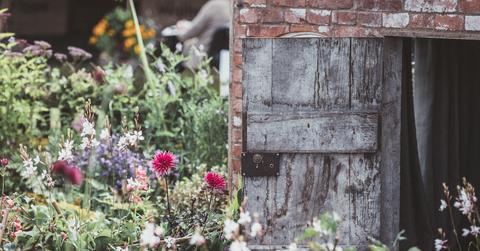How Ocean-Friendly Gardening Can Save Our Waterways
Stormwater runoff is one of the biggest culprits of ocean pollution. But no matter how far upstream you live, starting an ocean-friendly garden can help protect all waterways and keep runoff from ever reaching the sea.
Nov. 19 2020, Updated 9:40 p.m. ET
Stormwater runoff in urban areas is one of the biggest culprits of water pollution in the world. In fact, a city block produces five times the runoff of a wooded area of the exact same size.
The pollution has many sources: chemical fertilizers, pesticides, oil and gasoline on the roads, sediment from landscaping, sewage from outdated wastewater treatment facilities, cigarette butts and plastic cups... You name it, eventually anything that can get moved around by flowing water makes its way from land to sea.
That is, if there are no buffers like trees, plants, or marshes to slow it down, filter, or absorb it.
Whether you live on the coast or miles and miles inland, the ocean is always downstream from every storm drain, creek, river, and city street. And all that runoff threatens the health of human and marine ecosystems alike. That’s why no matter where you live, ocean-friendly gardens — or OFGs — are a simple way that we, on land, can help protect our waterways. Never heard of OFGs? No problem. Here’s your guide.
Ocean-friendly gardens are good for all waterways.
Whether you have a waterfront property or live 100 miles from a coastline, the fact is your landscape is impacting water quality — and eventually, ocean health. It therefore benefits everyone when each of us considers how our own property changes the waterways downstream.
Ocean-friendly gardens are landscaped green spaces designed to capture and soak up stormwater before it can head out to sea. These permeable surfaces can also reduce the risk of flood while creating a natural habitat for wildlife, birds, and butterflies. They can also combat climate change by using and storing carbon dioxide and they pretty much water themselves. That’s a win-win for gardeners looking to do good with less work.
Runoff is adversely affecting surfers and swimmers of every species (and on every waterway).
Imagine this: The waves are pumping at your favorite break, and there’s an empty lineup. It’s the rarest of luxury in the beach communities of Los Angeles. But it just rained. So while your heart tugs you to the beach for a morning surf, you know the heightened risk of another ear infection, rash, stomach bug, or who knows what else. That’s because rains can cause septics and sewage systems to overflow, and pushes everything on land toward the water.
Post-rain health threats are well-documented, and have sounded big alarms in surf communities. Inland, the same is true for lakes, rivers and creeks.The solution lies in finding ways to create buffer zones between land and water. Easier said than done, I know. But with the growing research on ocean-friendly gardens, it’s possible for all of us to do our part.
Cities are (finally) catching on to ocean-friendly design.
Though many cities were not developed with permeability in mind, some are retroactively making efforts to mitigate runoff and protect their waterways. The New York City Department of Environmental Protection has installed 3,000 rain gardens all around the city to improve water quality, reduce puddles around the city, purify air, cool the city mid-summer, and beautify neighborhoods — and that’s just the start.
Groups like Surfrider Foundation are empowering individuals through educational guides and workshops to create their own OFGs.
Creating our own ocean-friendly gardens allows each of us to make a difference.
While pushing our cities to create more permeable green spaces is important, we can also take action right away, on our home turf. Here are the key components to keep in mind as you dream up your very own OFG:
If you want to dig deeper into DIY’ing an OFG at home, check out the online guides by Surfrider Foundation and 12,000 Gardens. Thank you for keeping our waterways clean and your yard beautiful!
